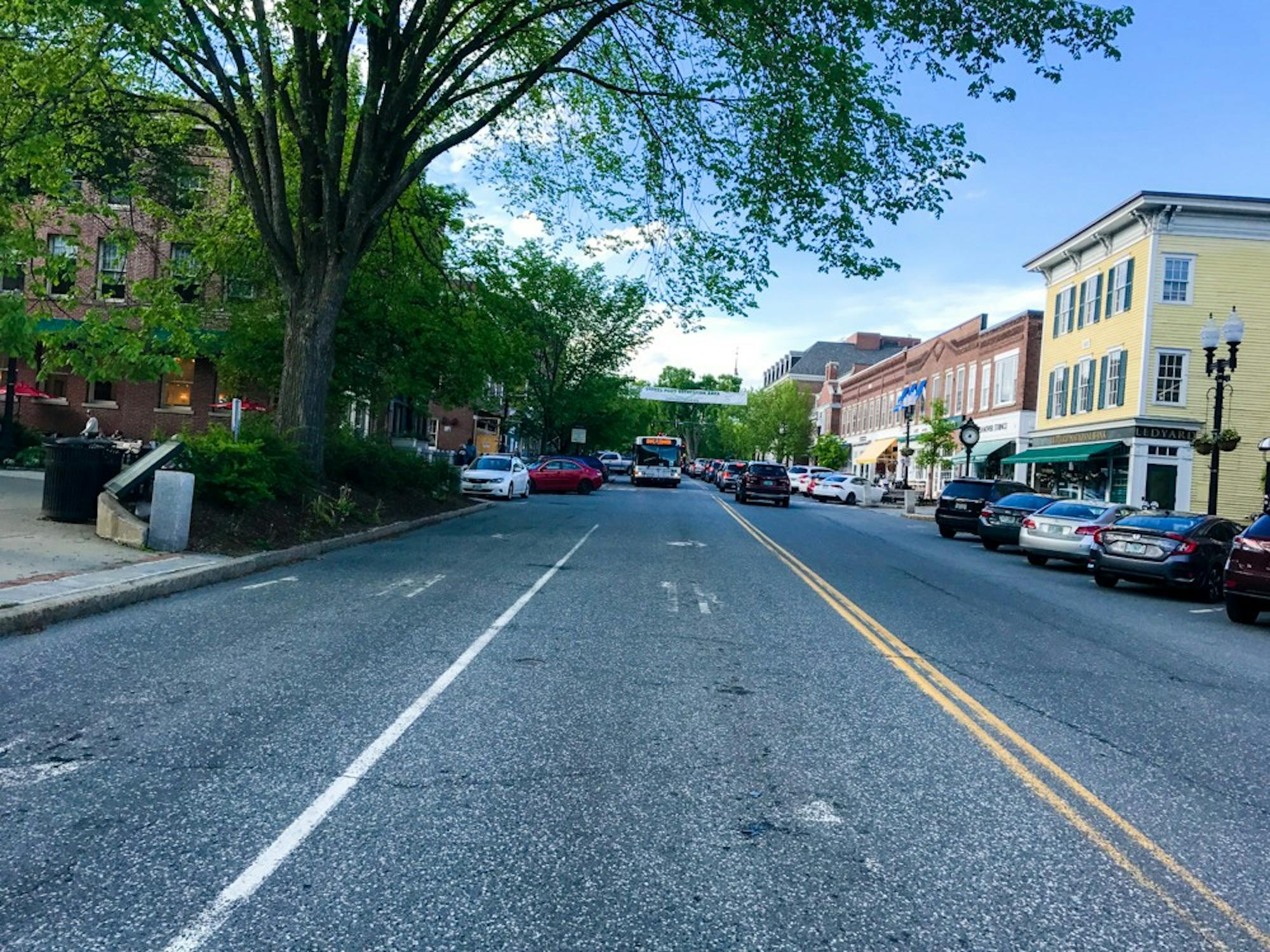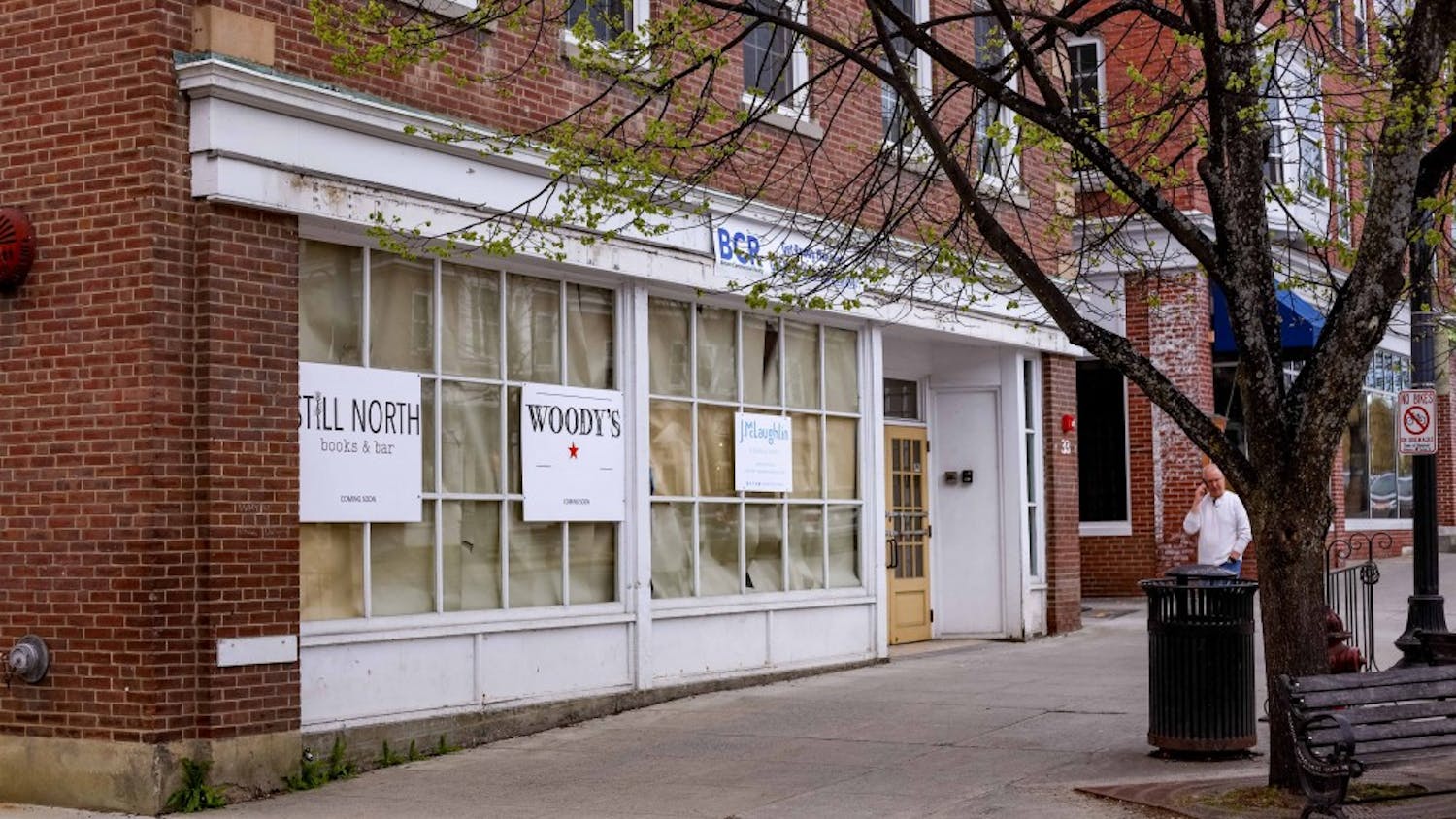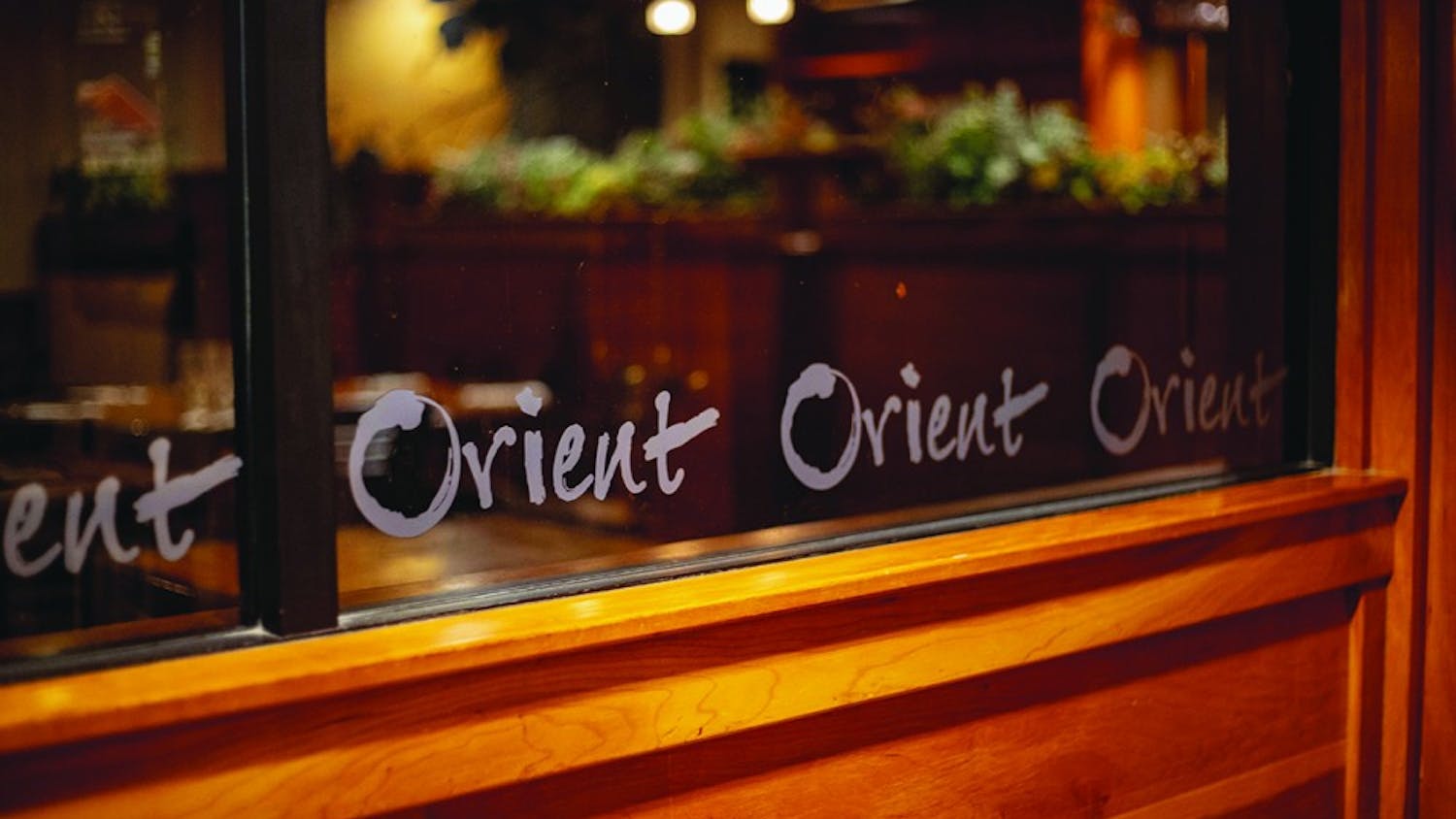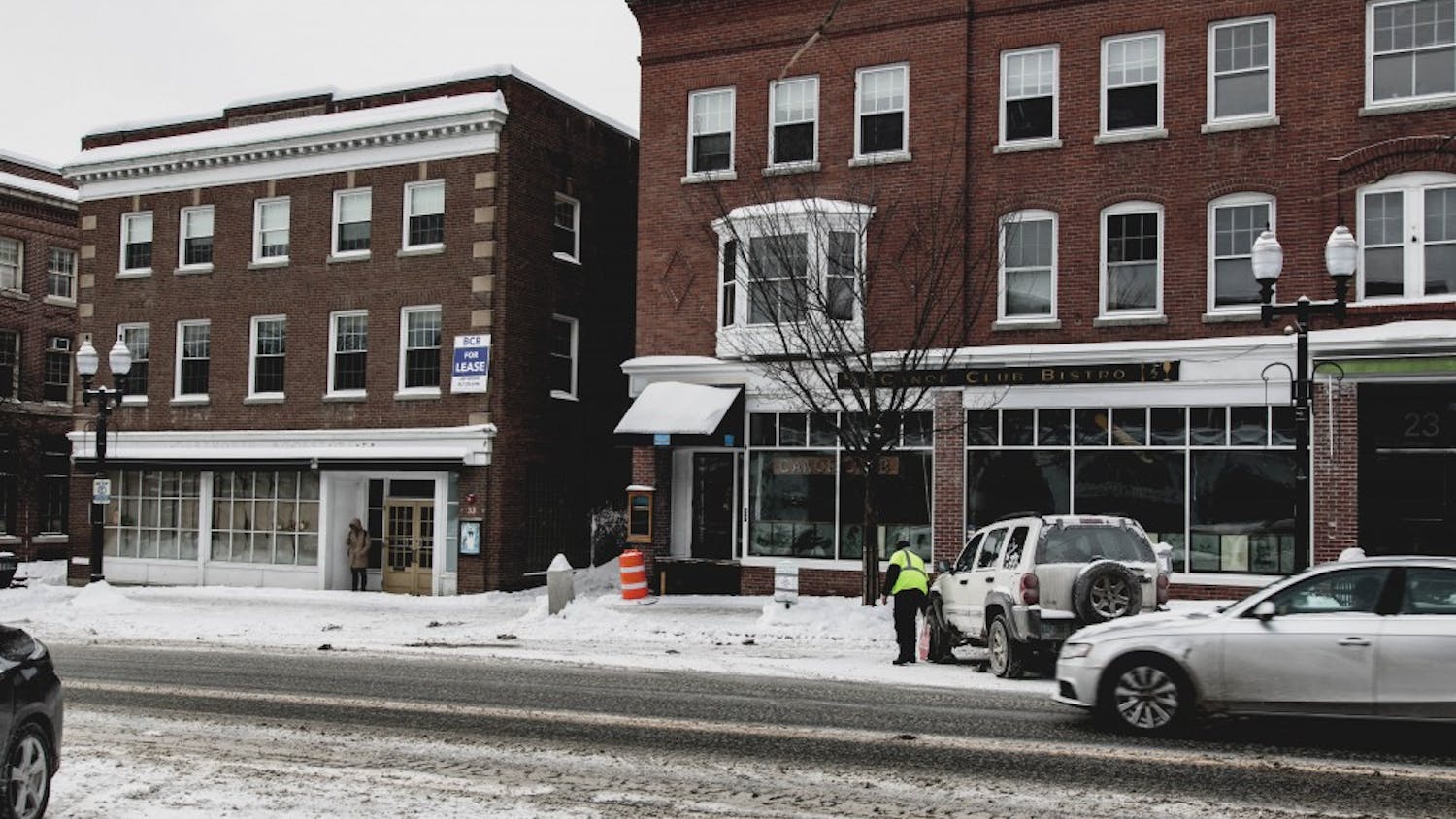Since the Class of 2019 first arrived on campus nearly four years ago, Hanover has seen a vast array of changes, including several major construction projects, renovations, closures of long-standing businesses and subsequent efforts to revitalize the downtown retail scene.
“With Dartmouth celebrating its 250th anniversary, it’s an interesting moment to pause and reflect in terms of where we are and where we’re heading,” said vice president of campus services Steven Moore. “Certainly a portion of that involves thinking about our physical space on campus.”
Since 2015, the College has introduced a variety of new facilities to its campus. Members of the Class of 2019 will recall a time before the launch of Dartmouth’s house system and the ensuing construction of House Centers A and B — referred to more commonly as “the Onion” and “the Cube,” respectively. While both were designed as temporary structures, they have become popular study spaces, as well as sites for community dinners and campus events. Alongside the house centers, the College recently constructed new residences for house professors close to campus.
For nearly the past three years, the expansion and renovation of the Hood Museum constituted another major on-campus project. The museum substantially increased in size with the addition of three object-study rooms, five new galleries, a new atrium and a dramatic, overhanging entrance visible from the Green. Although the Hood reopened only five months ago, it has already become a popular venue for receptions, student performances and formal events for various student organizations.
Other significant changes to the campus’ appearance include the 2016 renovations to Baker Tower and a replacement of the library’s roofing — swapping out its signature green color for a bright copper. Seniors will also likely remember the extensive repairs to Morton Hall, which followed a four-alarm fire in October 2016 that rendered the dormitory uninhabitable.
Moore said that a wide range of additional capital projects have altered the campus within the past few years, from the installation of rooftop solar panels on several campus buildings to technological upgrades in classrooms and residential operations.
“[The Class of 2019] has certainly been navigating a fair bit of construction on campus,” Moore said. “There’s a lot happening, and it’s all exciting, but we’re also cognizant that students have to live through these construction projects on our relatively constrained campus.”
At the same time, Hanover town manager Julia Griffin said she looks back on the past 10 years as a period of relative stagnancy in comparison to the campus’ upcoming construction plans.
“Just up until the recession in 2008, there was a ton of construction on campus,” Griffin said. “When the recession hit, Dartmouth put the brakes on a lot of its capital projects. But now it’s picking up again, and the College is beginning another 10-year period of heavy construction on campus.”
Moore largely attributes these new projects to the $3 billion Call to Lead capital campaign announced by College President Phil Hanlon last spring.
Currently, ongoing construction projects can be found on nearly every corner of campus. Moore said he anticipates that renovations to Dana Hall and work on the demolition site of Gilman Hall — which have been a source of considerable noise at the College’s north end — will conclude within the year. Additionally, a new indoor practice facility for student athletes is projected to open adjacent to the Boss Tennis Center by 2020, and the construction of a new facility for the Thayer School of Engineering and the computer science department on the campus’s west end will be completed by 2021, according to Moore.
However, as the College approaches another period of growth, Griffin said that the past four years have marked a significant decline in business on Hanover’s Main Street. Currently, there are several vacant storefronts once occupied by stores and restaurants.
“We’ve lost a lot of staple places in the past few years,” said Lacey Colburn, a manager and server at Lou’s Restaurant. “I think every Hanover business owner’s question right now is why this is happening.”
In recent years, several retailers — the Dartmouth Bookstore, Wheelock Books, clothing stores Zimmerman’s and Rambler’s Way, Eastman’s Pharmacy, Game Set Mat and Folk — have all gone out of business. Many Hanover restaurants have similarly struggled to remain afloat. Canoe Club, Kata Thai and Orient all closed their doors within the span of the past year.
In particular, Griffin expressed regret over the folding of long-time Hanover institution Everything But Anchovies. She referred to the pizza restaurant’s closure as a “sad transition away from a long-standing local business that for years had been so successful in serving the Dartmouth population.”
Griffin pointed to the “Amazonization” of small-town America as a primary catalyst for the hard times that have recently struck Hanover retailers. She said she thinks that students are more attracted to the convenience of online shopping and quick delivery, citing a fourfold increase in the number of packages delivered to campus over the last few years.
“It’s symptomatic of the shift we’re seeing in the student population and its connection to downtown retailers and restaurants,” Griffin said. “A large percentage of our community is very Internet-oriented and would prefer to shop on their personal devices.”
In response to the effects of this “Amazonization,” Griffin said she wants to protect the remaining local businesses downtown.
“We don’t want to be a downtown of chain stores,” Griffin said. “We went to be unique and support local artisans and local food producers … but it’s easier said than done.”
While the Class of 2019 is preparing to depart from Hanover, a new lineup of businesses will soon arrive on Main Street. The former site of the Dartmouth Bookstore will house Still North Books — a bookstore, café and bar operated by Allie Levy ’11 — and clothing stores Woody’s and J. McLaughlin.
In spite of the ongoing changes to the town’s makeup, Colburn said that Hanover’s quaint, small town character has remained steadfast.
“Hanover’s still pretty much stayed Hanover,” Colburn said. “Restaurants and stores come and go, but the spirit of the town is still the same.”
Elizabeth Janowski '21 is the news executive editor of the 177th directorate. Hailing from Brookfield, Wisconsin, she is pursuing a double major in history and film and media studies.




